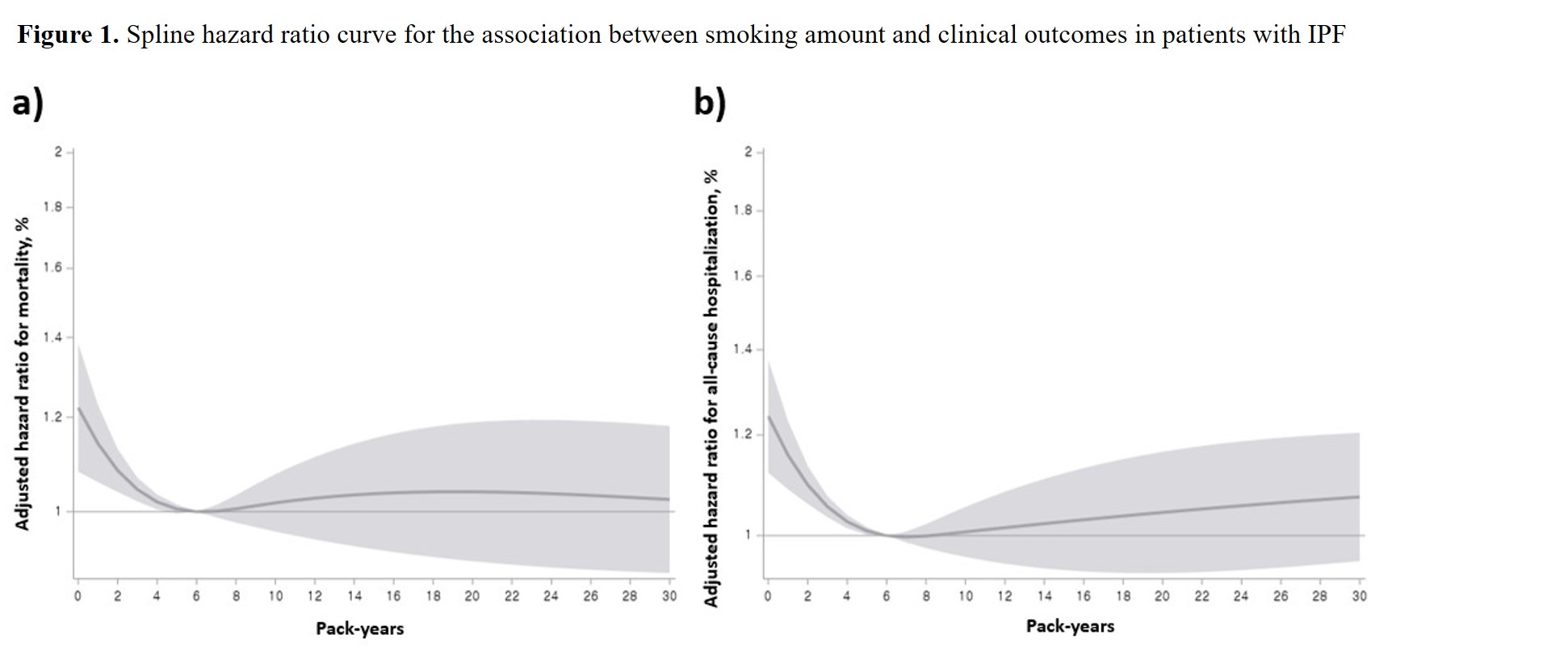Abstract
Background: The effect of smoking on the prognosis of idiopathic pulmonary fibrosis (IPF) patients is unclear. We aimed to investigate the association between smoking status and IPF prognosis using Korean national health claim data.
Methods: The study included patients with IPF with available smoking status data (n = 10,182). The Cox proportional hazard models and spline curve hazard ratios adjusted by clinical and socioeconomic variables were used to assess the association between smoking and all-cause mortality or hospitalization.
Results: Of the whole cohort (mean age: 69.4 years, males: 73.9%), 45.2% were ever-smokers (current: 14.2%, former: 31.0%). In the multivariable analysis, current (hazard ratio [HR]:0.709, 95% confidence interval [CI]: 0.643-0.782) and former (HR: 0.926, 95% CI: 0.862-0.996) smokers were independently associated with IPF mortality compared with the non-smokers. Also, current (HR: 0.884, 95% CI: 0.827-0.945) and former (HR: 0.909, 95% CI: 0.862-0.959) smokers showed the reduced risk of all-cause hospitalization compared to the non-smokers. In the spline hazard ratio curve, IPF patients who smoked less than six pack-years had a significantly higher risk of mortality and hospitalization (figure 1a and 1b), while there was no association in those who smoked six pack-years or more.
Conclusions: Ever-smoking status may be associated with favorable clinical outcomes in patients with IPF.
